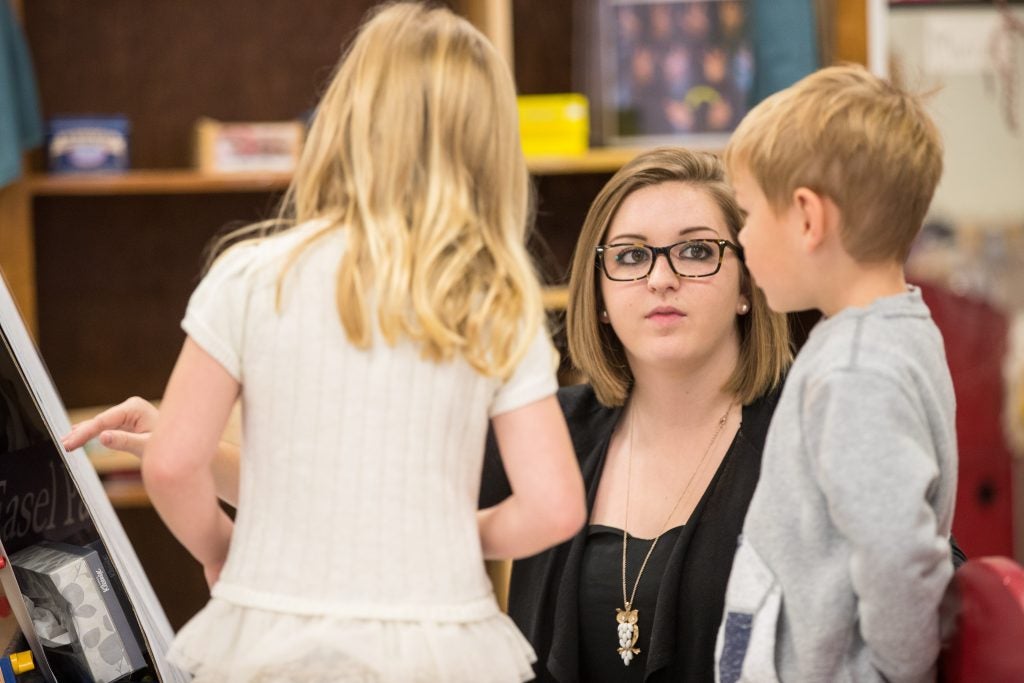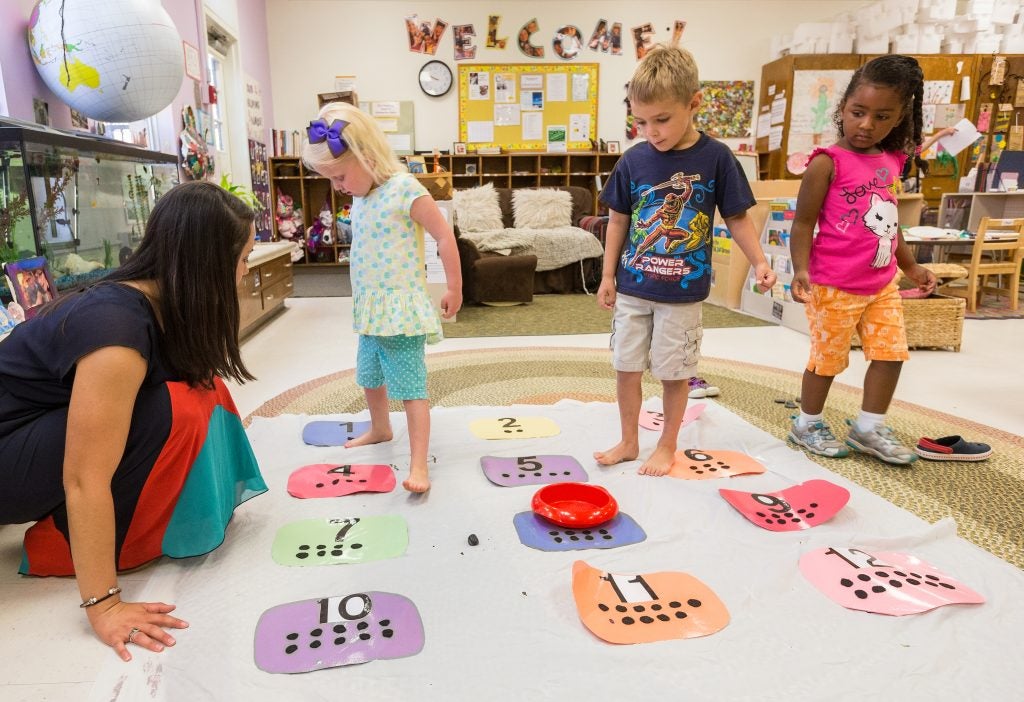Politics and kids: Explaining a contentious election
The 2016 election season has come to a close, but the polarized attitudes surrounding the campaigns may still continue to impact our children. The amount of negative campaigning, especially in swing states like North Carolina, has been difficult to conceal from our youngest citizens, according to two child development experts at East Carolina University.

Amanda Blakley works with students at the Nancy Darden Child Development Center on campus. (Photo by Cliff Hollis)
“Children in elementary schools were talking about the candidates and what they have heard on television or from parents. I’ve had to answer questions from my own school-age children about topics they discussed in school,” said Dr. Sheresa Blanchard, assistant professor of human development and family science at ECU.
Blanchard and her colleague, Melissa Nolan, director of the Nancy Darden Child Development Center at ECU, offers tips for discussing the outcome of the election with children.
Display good sportsmanship
Whether your candidate wins or loses, it’s an opportunity for adults to display good sportsmanship. Children mirror the emotions and attitudes of their parents, and the emotions this election year have run high.
“Remain calm. It’s a fact that children respond to how we react and will feed into it. If parents are frustrated, angry or happy about the outcome, it’s OK to identify those feelings and calmly put them into words,” said Blanchard.
Choose your words carefully
Try to remain as neutral as possible when talking about the outcome of the election.
“Children do not have the cognitive ability to rationalize exaggerated comments. If they overhear an adult say, ‘the world will end’ if their candidate loses, children believe the world will end,” said Blanchard.
These kinds of statements can lead to fear and uncertainty. Nolan encourages parents to reassure their children that they are still safe and will be taken care of no matter the outcome.
Be honest
Blanchard and Nolan agree that it’s OK to be honest with your children and share what you are feeling. Give them the space and the opportunity to share their emotions too and ask questions. Ask them how they feel about what they’ve seen and heard.
“Don’t give children more information than what they want,” said Nolan. She suggests encouraging children to ask questions and for adults to stick with short honest answers.
“Adults tend to give too much information,” she added.
Recognize teachable moments
Use opportunities that arise to teach and model, tolerance.
“Parents can explain that even though they may not agree with the person in office, we should still respect them and find a way to move on,” said Nolan.
Blanchard said parents can try to find optimism in the situation.

Jessica Pate, Collier Taylor, Finley Charles, and Marai Blanchard play at ECU’s Darden Center.
Meet our experts:
Dr. Sheresa Blanchard is an assistant professor of human development and family science at East Carolina University in Greenville, North Carolina. Her research interests include early childhood education, parenting and family-centered practices.
Melissa Nolan, M.S. is the director of East Carolina University’s Nancy Darden Child Development Center, part of the Department of Human Development and Family Science. Her expertise includes best practices in early childhood education and child care administration.
*Note to editors and reporters: If you’re interested in speaking to one of these two experts, contact ECU News Services at 252-328-6481.
-by Jamie Smith